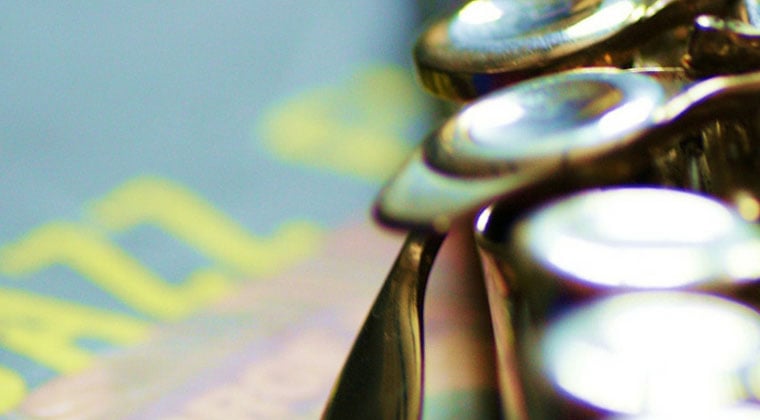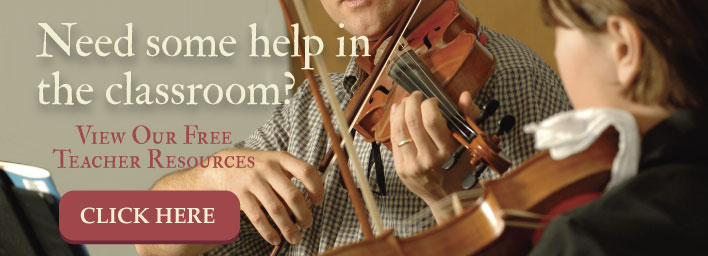
 Many students start music lessons with a great deal of enthusiasm. Picking out an instrument, being responsible for keeping it safe and in good working order, and the fact that being able to play music is just cool creates an anticipation that generally lasts for the first few months. However, when learning new techniques becomes more challenging, or the student begins to chafe because of the natural time it takes to develop playing skills, he or she can become restless. Often, after the first year, it’s a struggle to keep your students interested.
Many students start music lessons with a great deal of enthusiasm. Picking out an instrument, being responsible for keeping it safe and in good working order, and the fact that being able to play music is just cool creates an anticipation that generally lasts for the first few months. However, when learning new techniques becomes more challenging, or the student begins to chafe because of the natural time it takes to develop playing skills, he or she can become restless. Often, after the first year, it’s a struggle to keep your students interested.
Yet, continuing with a music education is very important. Studies have shown that real strides are only achieved when the student stays the course and attends music training for more than 18 months. Indeed, it can take up to 6-8 years of instruction before an individual becomes proficient enough to become an independent learner who is able to play for his or her entire life. Plus, experiencing a high turn-over rate among your students doesn’t bode well for your reputation as an instructor. Therefore, finding ways to keep your best music students is a goal that every teacher strives to attain.
These four ideas can help you in that aim by offering some tried and true methods for keeping your students excited about learning music and determined to develop their skill.
Set the Stage
Your surroundings have a strong, if often subtle, impact on your attitude and impressions. Consider how it feels to sit in a blank, cinderblock wall waiting room as opposed to the plush environs of a day spa. Likewise, the way your music classroom is decorated and arranged has a big influence on the attitudes of both you and your students.
You can set the stage for long-term learning by generating a welcoming atmosphere at your facility. Whether you conduct private lessons or work within a structured school setting, the furnishings, wall-hangings, and color schemes make a big difference in the enthusiasm and excitement of your students. And, you’ll want to alter it from time to time. Even the most inviting environment can become stale if it’s never changed. Keep your best music students by providing a learning environment that energizes their spirits.
Increase Music Options
Many of the most promising music students quit because they feel frustrated with the style of music that they must learn. When they’d rather be learning Katy Perry’s latest hit, they’re saddled with classical compositions that were the height of fashion about 200 years ago, or a song that seems childish. Try including some of the most popular music and styles into your curriculum. By offering your students a recent variety of pop, country, bluegrass, and jazz, you can help encourage their interests, which will keep their learning fervor alive.
Another great idea is to allow your best music students to vote on which new tunes to incorporate. Students like to feel that they have options, and providing the opportunity for them to become an active part of choosing what music they learn will help maintain their desire to advance.
Offer Plenty of Performances
It’s natural to want to display your talents, and music students are no different. Frequent performance goals play a key role in keeping your best music students interested in continuing their education, especially if the venue is fun. By scoping out cool places to conduct concerts, you provide your music students with the impetus to practice and deliver stellar performances on a regular basis.
In addition to your bi-annual shows, you may want to organize holiday concerts at your community park, or some sort of music challenge with other schools in your area. Essentially, you’ll want to offer plenty of chances for your best music students to be able to display their talents.
Commendations and Support
Everyone, no matter their playing ability, needs encouragement and support from time to time in the form of commendations. Learning to play a musical instrument, train your voice, or compose new tunes is a challenging process that requires determination; and students need to feel that their efforts are supported and appreciated. As a teacher, you should recognize important breakthroughs and offer judicious praise—even if it’s just acknowledging mastery of a specific measure. It’s also very important to keep the lines of communication open with parents so that you can ensure that your best music students are receiving the support and encouragement they need at home.
Keeping your best music students in class can be a struggle, but by developing methods and opportunities that fuel their natural inclination to play, you’ll be able to ensure that you’re providing a music education that will benefit your students and last for a lifetime.


